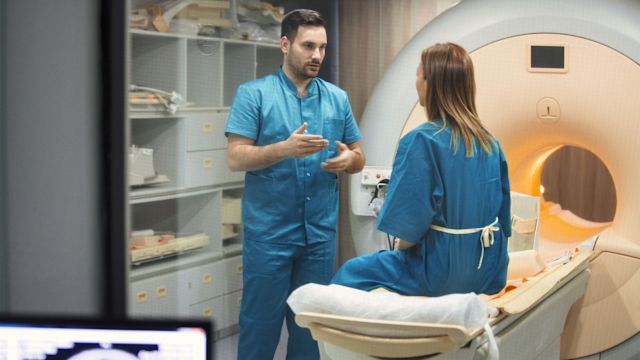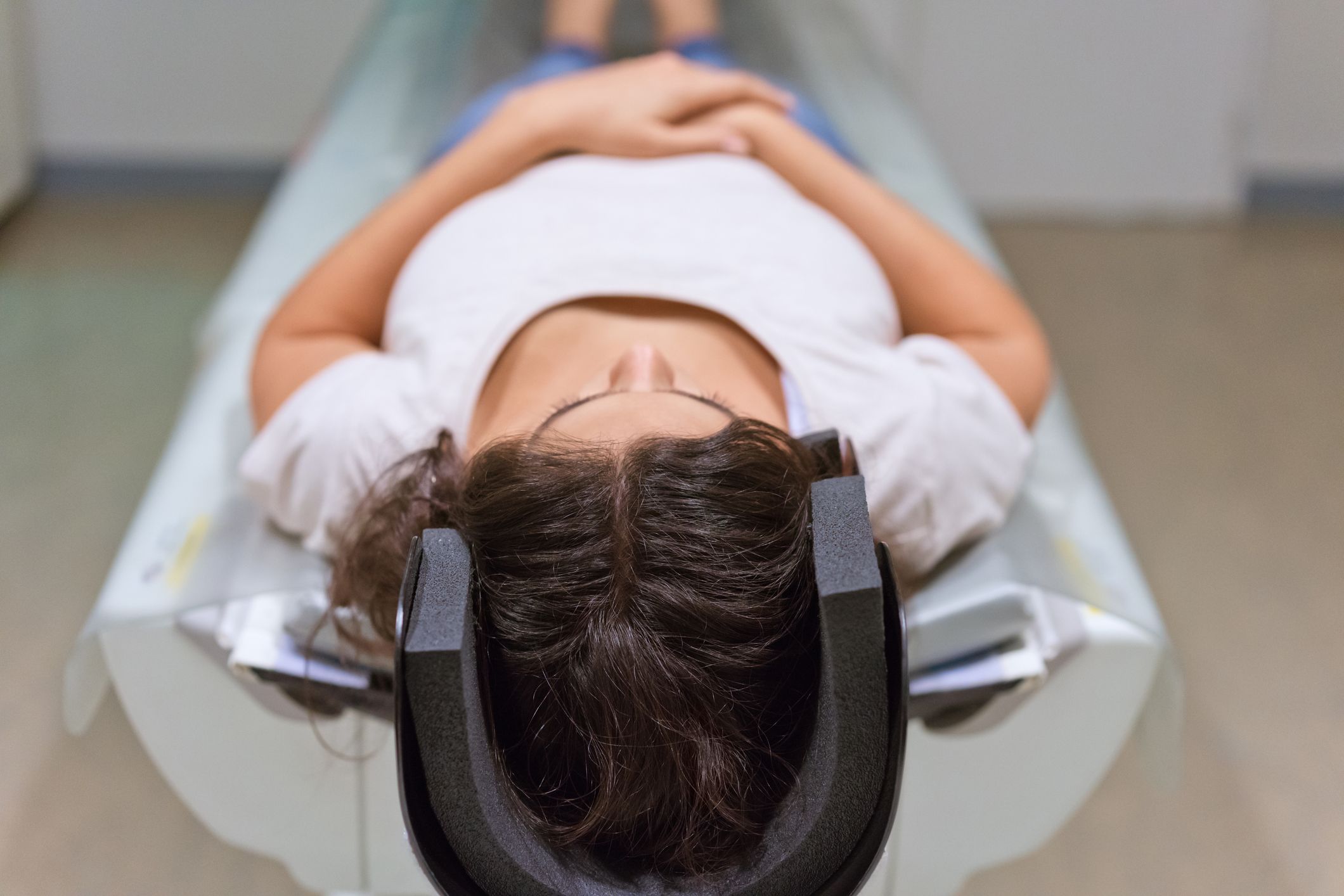Relapsing-remitting multiple sclerosis (RRMS) is the most common form of multiple sclerosis, a disease where an inflammatory immune response damages the central nervous system. When talking about MS, “form” refers to a disease course, or the pattern and progression of symptoms. With RRMS, the disease course involves relapses (also called attacks, exacerbations, or flare-ups) followed by periods of remission.
Relapses and remissions
During a relapse, an inflammatory immune response attacks both myelin—a fatty substance that forms a protective layer over nerve fibers—as well as the nerve fibers contained inside myelin. This disrupts nerve signals that are traveling through the body, and as a result, the person having the relapse can experience a range of neurologic symptoms. The symptoms that occur during a relapse can be new, or they may be a worsening of existing symptoms.
A relapse is followed by a remission. During a remission, the inflammatory attack stops. Though some symptoms may be permanent following a relapse, symptoms will not progress (worsen) during a remission, and some symptoms may disappear altogether. It is important to note that while RRMS follows this pattern, the disease is different for everyone—the symptoms and severity of symptoms can vary greatly from one person to the next.
Because relapses occur in random, unpredictable patterns, RRMS can cause a variety of different symptoms. Some of the most common symptoms include fatigue, numbness or tingling sensations, weakness, stiffness, muscle spasms, problems with balance and coordination, problems with bladder and bowel control, difficulty thinking clearly, and vision problems. For most people with MS, only a few of these symptoms will be present. However, for those that have severe MS, many or all of these symptoms may be present.
Modifiers
There are a few additional terms that healthcare providers may use to describe RRMS: active/not active and worsening/not worsening. Active means that a patient is experiencing relapses, or new lesions are visible on an MRI, and not active means that there are no relapses or no evidence of new lesions. Worsening means that there is an increase in disability after a relapse, and not worsening means that there has been no increase in disability following a relapse. These modifiers are not used to describe different subtypes of RRMS, but used to describe how the disease is behaving at a particular point in time.
Progression
For some patients, RRMS will progress into a second phase of the disease, called secondary-progressive multiple sclerosis (SPMS). With SPMS, relapses will become less frequent or cease altogether, but neurologic function becomes progressively worse. As with other forms of multiple sclerosis, SPMS is a bit different for everyone, and symptoms and severity vary from person to person.
Treatment
There is no cure for RRMS—or any other form of MS—but there are treatments available. These include steroids, which are given to reduce the duration of relapses, as well as a number of disease-modifying therapies (DMTs) that can prevent relapses, reduce the number of relapses, limit disease activity, and slow the progression of MS. Patients will also work with healthcare providers to address their specific symptoms of MS—for example, medications that can help address bladder symptoms, and physical therapy to help improve or maintain mobility.
Because MS affects everyone a bit differently, it is important to work with a healthcare provider and take an active role in your treatment.





